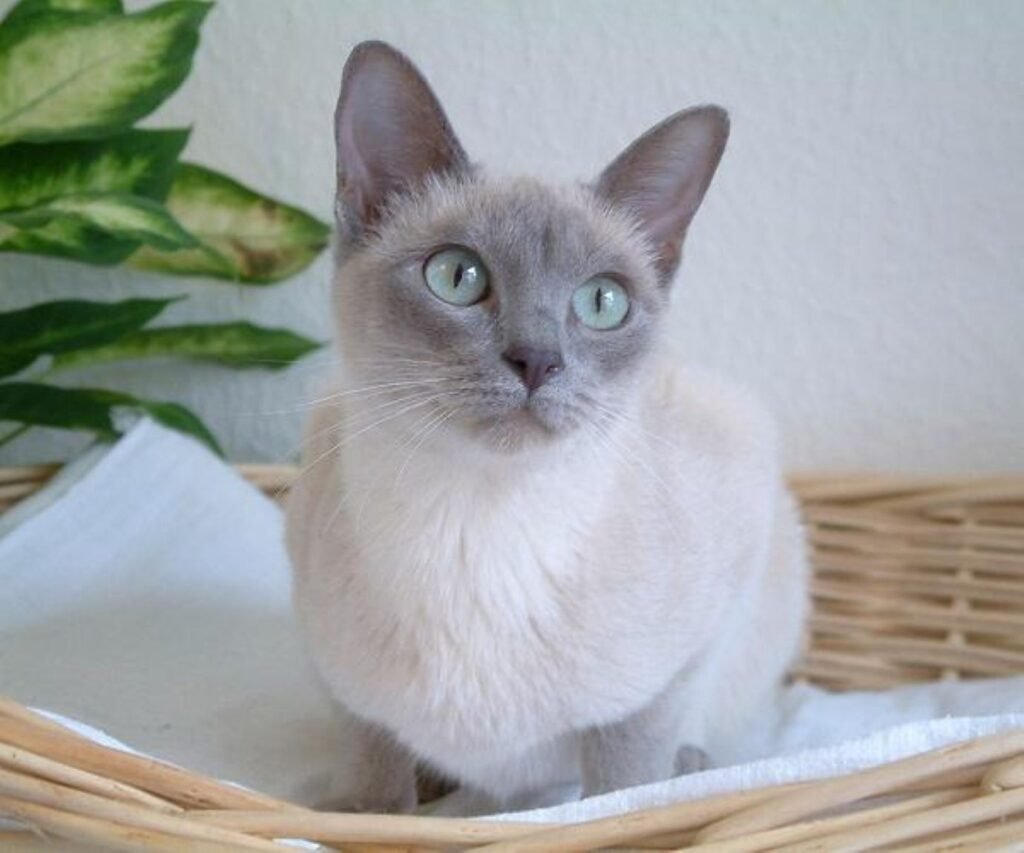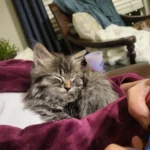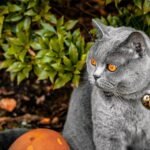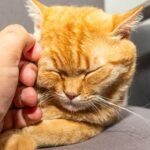The feline world offers an incredible spectrum of personalities, from social butterflies who greet every visitor at the door to mysterious creatures who prefer observing from quiet corners. Some cats transform into welcoming ambassadors the moment a stranger walks through the door, while others retreat to their favorite hiding spots to assess the situation from a safe distance.
Understanding these personality differences can help you choose the perfect feline companion for your lifestyle or better appreciate the unique character of your current cat. Whether you crave constant companionship or value a more independent relationship, there’s a breed that matches your preferences perfectly.
Maine Coon: The Gentle Giant Who Welcomes Everyone

Maine Coons are described as dog-like because they follow people around and are very sociable, often called ‘the dogs of the cat world’. Other cats, dogs, children and strangers all get the Maine Coon friendly and approachable traits, seeming unafraid of making associations with anyone. These gentle giants typically weigh 13-18 pounds for males and 8-12 pounds for females, making quite an impression when they stride confidently toward newcomers.
As a people-oriented breed, Maine Coons are easy to train and can even learn to walk on leashes. They’re very friendly and extremely sociable, great for human companionship since they love to cuddle. Their curiosity about human activities means they’ll likely investigate any new person who enters their territory with genuine interest rather than suspicion.
Ragdoll: The Ultimate Lap Cat for Strangers

Like Maine Coons, Ragdolls are incredibly social and love spending time with their family, true lap cats with hearts of gold and patience galore. Because they’re friendly to strangers, Ragdolls are safer as indoor pets. These laid-back felines earned their name from their tendency to go limp when picked up, showcasing their trusting nature with both familiar faces and newcomers.
Ragdolls are ultra-affectionate lap cats, known for going limp in their owner’s arms when picked up and craving human interaction. They make great pets for families or singles interested in including a calm feline companion in their daily activities, happy to tag along with you in a backpack, with easy-going and adaptable personalities making them ideal for homes with kids and other pets.
Sphynx: The Hairless Social Butterfly

To say the Sphynx cat is friendly is an understatement – they get along great with strangers, children, pets in the household – basically anyone who wants to play with them. It may not be surprising that a cat who goes nude all the time loves the company of strangers – the Sphynx is certainly comfortable in their own skin and these highly social cats get quite a bit of attention for their unusual looks, and they’re just fine with that.
Sphynx cats love to be the center of attention and might even get in trouble to ensure you’re watching – with their love of attention, the Sphynx can be mischievous and silly, but they’re also very affectionate, thriving on human interaction. These attention-seeking cats view every new person as a potential audience member for their entertaining antics.
Burmese: The Chatty Companion

The Burmese loves to play fetch and is super outgoing, highly social and loves to have conversations with their humans, genuinely wanting to be with its owners. The Burmese cat loves to chat, and unlike some vocal felines, their voices are soft and sweet – perfect for first impressions, craving companionship. Their dog-like personalities make them natural hosts for visitors.
They have a tendency to be friendly with humans of all ages, making them great family pets. That desire to keep an eye on human activities extends to guests in the home, as well. Don’t expect privacy when entertaining guests with a Burmese around – they’ll want to supervise and participate in every social interaction happening in their domain.
Abyssinian: The Athletic Ambassador

Abyssinians make for fun pets today because of their playful, curious natures and openness to new people and situations. These athletic cats have been around forever, so they’re comfortable playing with other cats, kids and even – gasp! – dogs. Their ancient heritage seems to have given them wisdom about reading social situations accurately.
The Abyssinian cat is friendly and affectionate but finds ways to entertain themselves throughout the day – the Abyssinian wants your attention and will do anything for it. Though they’re not typically lap cats, their interactive nature means they’ll gladly demonstrate their climbing abilities or play games for impressed visitors.
Bombay: The Velcro Cat

Bombay cats are often called velcro cats, as they love being by their owners’ sides, and are considered to be especially good with strangers. The combined genes created a stunning panther-like cat that just happens to be one of the most affectionate cat breeds, with the Bombay being friendly and outgoing, expecting you to like him. These sleek black beauties approach social situations with confidence and charm.
Their panther-like appearance might seem intimidating at first glance, but their personality couldn’t be more welcoming. Bombays seem to operate under the assumption that everyone they meet will naturally adore them – and they’re usually right. They’ll confidently approach strangers with the expectation of receiving attention and affection.
Siberian: The Forest Cat Ambassador

Today these large kitties are among the most intelligent breeds – and the friendliest, deeply people-oriented and wanting to spend time following their family members around, meeting you at the door when you come home. These robust cats from Russian forests have developed strong social skills over centuries of living alongside humans. Their impressive size and luxurious coat make quite an impression on visitors.
Their intelligence shines through in their ability to assess new people quickly and respond appropriately. Siberians seem to understand that most visitors come in peace and deserve a proper feline welcome. Their sturdy build and confident demeanor help them approach strangers without the skittishness some other breeds display.
Tonkinese: The Party Host

“This cousin of the Burmese has an incredibly outgoing personality, with as much love for their family as visitors – they’ll bring the party to the house and serve the snacks, later curling up with you and telling you all about the day”. These friendly and adaptable kitties are good with children and other pets, however, they require lots of attention, known for being very active and affectionate.
These social creatures don’t just tolerate visitors – they actively entertain them. Tonkinese cats seem to view every gathering as their personal stage for showing off their playful antics and charming personality. Their outgoing nature makes them natural conversation starters at social gatherings, helping even shy guests feel more comfortable.
Russian Blue: The Silver Phantom

Known for their shimmering silver-blue coat, Russian Blues are as mysterious as they are beautiful – these cats are often shy and reserved, preferring to observe their surroundings from a distance. Russian Blues are not only prized for their beautiful blue coat but also for their quiet and shy nature, known to be more reserved and are less likely to vocalize compared to other breeds.
Russian Blue cats offer a tranquil presence with their whisper-soft purrs and aloof yet affectionate behavior. These cats need time to warm up to new people and situations. They’re perfectly content to watch social interactions unfold from their chosen observation post, usually a high perch where they can monitor everything safely.
British Shorthair: The Stoic Companion

The British Shorthair is a classic breed admired for its rounded features and plush, teddy bear-like appearance – despite their inviting looks, these cats are generally reserved and enjoy their independence, calm, even-tempered, and rarely seeking out attention. A portrait of understated grace, the British Shorthair enjoys attention but is equally happy to entertain himself while you’re away, wanting to be with their people, not necessarily in a lap or carried around, but next to them or in the same room.
British Shorthairs will tolerate petting but usually prefer to sit nearby rather than on your lap – their loyalty is quiet and understated, and they are content with minimal fuss, wonderful for people who love the presence of a cat without the demands of constant affection. They’ll acknowledge visitors with a polite nod but don’t expect enthusiastic greetings or lap-sitting sessions.
Scottish Fold: The Sensitive Observer

With their distinctive folded ears and round eyes, Scottish Folds have a unique charm that is hard to resist – these cats are known for their gentle and affectionate nature, forming strong bonds with their families, but despite their loving disposition, they are naturally shy around strangers and prefer to observe from a distance. Scottish Folds are known for their unique folded ears and tranquil personality – they tend to be very soft-spoken and rarely meow loudly, content with simply being in the same room as their owners.
They are very friendly and social, but just like the Siamese cats, they would get depressed when left home alone because they love being around people. While they adore their families, Scottish Folds need time to assess new people before deciding whether they’re worthy of interaction. Their sensitivity to mood changes makes them excellent judges of character.
Norwegian Forest Cat: The Mysterious Loner

Norwegian Forest Cats have an air of mystery about them, with their thick fur and bright, intelligent eyes – these cats are friendly but not overly affectionate. This undemanding cat breed developed naturally in Scandinavia is well known for its gentle and friendly demeanor – because of their semi-domestic nature, the Norwegian Forest Cats can cope well if their owners are often away. These majestic forest cats maintain an element of wildness that keeps them slightly aloof from human social dynamics.
Their impressive size and lynx-like appearance command respect, yet they rarely use their presence to intimidate. Norwegian Forest Cats prefer to maintain their independence while still being part of the household dynamic, observing social situations with intelligent eyes that seem to hold ancient forest wisdom.
Oriental Shorthair: The Selective Socializer

Oriental Shorthairs are sleek, elegant, and highly intelligent, but their personalities can be somewhat aloof – they form selective bonds, often attaching themselves to one person while remaining distant from others. These cats are curious and observant, preferring to watch the world go by from a sunny windowsill – although they may occasionally seek out attention, they are just as likely to slip away for some alone time, their independent spirit making them a good match for people who respect a cat’s need for personal space.
Their intelligence allows them to quickly assess whether new people are worth their time and attention. Oriental Shorthairs choose their social interactions carefully, preferring quality over quantity when it comes to human relationships. They’ll politely acknowledge visitors but save their true affection for their chosen person.
Understanding Your Feline’s Social Style

Whether your cat is a velcro companion or a quiet observer, their behavior often reflects both breed tendencies and individual personality – understanding which breeds naturally crave closeness and which value independence can help set realistic expectations and foster a stronger, more respectful bond. The beauty of the feline world lies in this incredible diversity of social styles, from the Maine Coon who treats every visitor like a long-lost friend to the Persian who maintains royal dignity in all social situations.
Remember that while breed tendencies provide helpful guidelines, every cat is ultimately an individual with their own unique personality quirks and preferences. Some reserved breeds might surprise you with occasional bursts of sociability, while typically friendly breeds might have shy moments. The key is understanding and respecting your cat’s natural inclinations while gently encouraging positive social experiences when appropriate.
What type of feline personality matches your lifestyle best? Share your thoughts about these fascinating social dynamics in the comments below.






